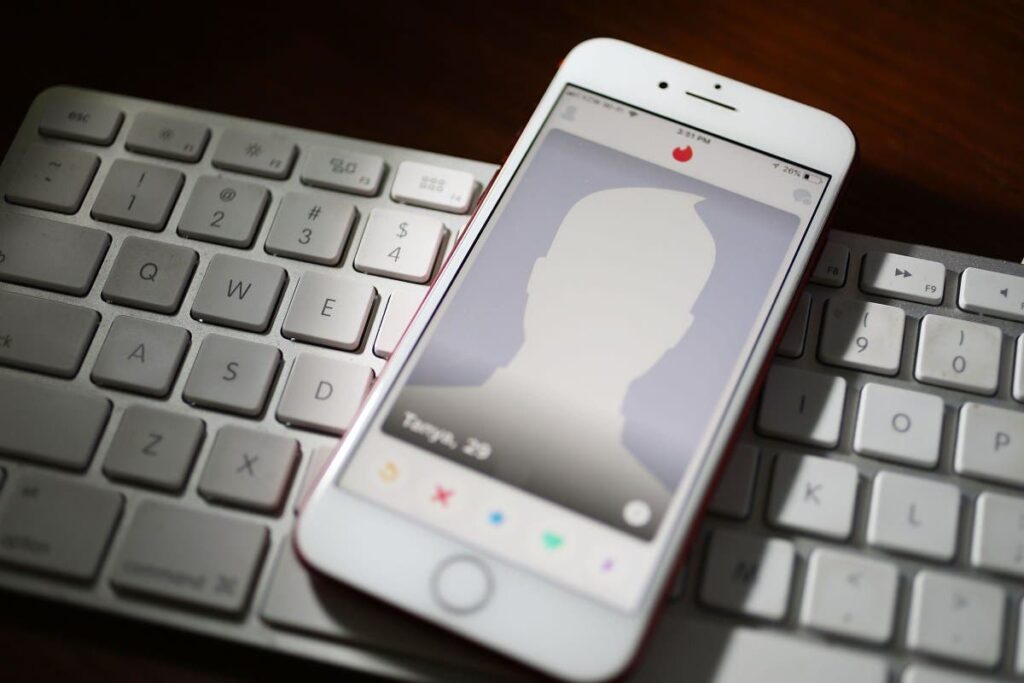A staggering number of online daters are lying about their identities, according to a new survey from digital identity verification platform ClarityCheck.
In the survey, 25 percent of online daters admitted to concealing or misrepresenting their personal details, such as relationship status, location or even identity.
Why It Matters
Both men and women alike have reported frustration with dating apps. While men often complain of low matches, women lament low quality matches and an overabundance of concerning or even harassing behavior.
People using dating apps who lie about their identity can complicate the process even further, causing people to match with others who may be cheating or not even live in the same city.
What To Know
The survey from ClarityCheck, based on the responses of 4,800 users across the United States, United Kingdom, and European Union, found a high number of online daters were aware of the deception they endured on the apps, with 63 percent saying they had matched with someone who turned out to be misleading.
This caused 54 percent to consider independent background checks as a routine step in online dating, and two-thirds of users 25 to 45 years old said they no longer trust profiles at face value.
Amongst those who misrepresented themselves on their profiles, 35 percent said it was due to privacy concerns, with another 28 percent citing fear of rejection. Meanwhile, for 18 percent, it was just deliberate deception.
“The finding that one in four online daters conceal or misrepresent parts of their identity is striking, but not entirely surprising,” ClarityCheck managing director Ihor Herasymov told Newsweek. “Online dating encourages curation; people are presenting the best version of themselves, and sometimes that crosses the line into omission or distortion. What we’re seeing is less about deliberate fraud in every case and more about how online environments blur the boundary between privacy, performance, and truth.”
Dr. Sabrina Romanoff, Hily Dating App relationship expert and clinical psychologist, said misrepresentation on dating apps exists on a wide spectrum.
“On the more benign end of the spectrum, people have a functional blindness of how they present to the world, often believing they may be more attractive and interesting than they are in the eyes of an objective observer. On the more deceptive end of the spectrum, people may lie to increase the pool of potential interested partners, and in turn their dating success,” Romanoff said.
“These are people who may post photos of themselves 10 years ago, heavily edit and distort their images, lie about their age so they can attract younger women, and a job that signals financial success. Also, there are people who lie out of self-protection, guardedness, and as a way to screen out potential predators (e.g., may underreport their level of financial success, family background, religious affiliation, etc.).”
What People Are Saying
ClarityCheck managing director Ihor Herasymov told Newsweek: “The result is a gradual decline in trust. When even small details are withheld or altered, it shifts the baseline of what users consider normal behavior online. That normalization can make it easier for more serious deception to go unnoticed.”
Dr. Sabrina Romanoff, Hily Dating App relationship expert and clinical psychologist, told Newsweek: “Regardless of the reason, valid or not, and conscious or not, this leads to an erosion of trust when people are misrepresenting themselves on such a widespread level. This often creates a level of skepticism when we review dating profiles online, and can unfortunately lead to cynicism which can color the entire dating experience.”
What Happens Next?
Online daters are encouraged to pay attention to small details and take note if their matches appear to avoid answering any basic questions.
“Online daters should pay attention to subtle inconsistencies, evasive answers about work or location, reluctance to video chat, or contact details that don’t align with other platforms,” Herasymov said. “Independent verification tools can help restore confidence by allowing people to confirm basic information safely before taking a relationship further.”
Read the full article here


